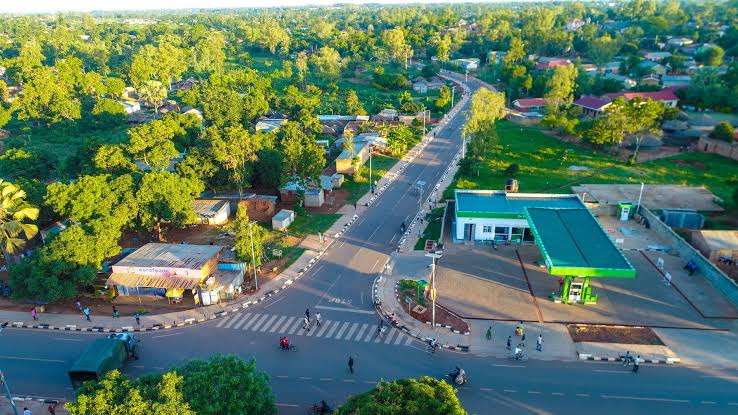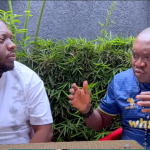The sun dipped low over Gulu, casting a warm glow on the dusty football pitch where Grace kicked a worn ball with her younger brother, Opiyo. At 17, she’d grown up with the thud of a drum and the sway of Acholi dance, her mother’s voice weaving stories of survival through the war’s scars. But that evening, the pitch felt different—government officials in crisp suits stood at the edge, maps in hand. “This land’s for a factory,” one announced, his tone final. Grace’s heart sank. This wasn’t just a field; it was where her community healed, where Opiyo learned to laugh again after losing their father to the conflict.
She approached them, her voice trembling but firm. “This is our home. Where will we play?” The officials waved her off, citing “development,” and drove away, leaving red markers staking the ground. That night, Grace sat with her mother under the thatched roof, the drum silent for once. “They can’t take it,” she said, her fists clenched. Her mother nodded, recounting how the village had rebuilt after the war, brick by brick. Inspired, Grace grabbed her phone and posted: “@GuluSoul: They’re stealing our football pitch for a factory. Our kids need this. #SaveOurField” (220 likes, 50 retweets). @AcholiYouth: “This is wrong!”—a flicker of support in the digital void.
The next morning, bulldozers rolled in, their rumble a threat to the laughter that once filled the air. Grace rallied the neighborhood—children with sticks, elders with walking sticks, women with babies on their backs. They formed a human chain, singing Acholi songs of unity, the rhythm pulsing through their feet. She recorded it, tweeting: “@GuluSoul: Village blocking bulldozers at our pitch. Stand with us! #ProtectOurSpace” (280 likes, 65 retweets). @UgandaVoices: “Incredible spirit!” The video spread, drawing volunteers from nearby camps, their presence a fragile shield against the machines.
Grace dug into the village’s history, finding old land deeds in a tattered box her mother kept. The pitch belonged to the community, not the government. She snapped a photo and posted: “@GuluSoul: Found our land deeds. This pitch is ours! #LandRights” (320 likes, 75 retweets). @LiraLawyer: “I’ll check them!” Hope surged, but the officials countered with legal jargon, pushing the fight to a district meeting. Her mother cooked beans for the protesters, her hands steady despite the fear, while Grace spoke on a local radio show, her voice raw with determination.
Days turned to weeks, the pitch’s edges chipped away by slow encroachment. Grace’s brother grew quiet, missing the games. She walked the field at dusk, the silence heavy with memories of her father coaching her first kick. At a community gathering under a mango tree, a friend, David, suggested a bigger push. “Use social media to shame them,” he said. Grace posted a video—Opiyo’s tearful face, the bulldozer scars, her mother’s prayer—captioned: “@GuluSoul: Our pitch is dying. Help us save it for Opiyo. #SaveGuluField” (400 likes, 90 retweets). @KampalaActivist: “Spreading this!” The clip went viral, pressuring the district to pause the project and promise a review.
The meeting day came, a stifling afternoon in a cramped hall. Grace presented the deeds, her hands sweaty but her words clear. The officials fumbled, their claims weakening under scrutiny. The district head relented, agreeing to halt the factory—for now. Grace tweeted: “@GuluSoul: Won the meeting! Our pitch is safe for now. We’re watching. #VictoryForKids” (450 likes, 100 retweets). @HopefulAcholi: “A win for Gulu!” The village danced, Opiyo twirling with her, their joy a melody against the dust.
But the triumph was shaky. Whispers of a new proposal surfaced, and night patrols found tire tracks. Grace organized watch groups, her drumbeat calling the youth to guard the pitch. She posted: “@GuluSoul: New threats to our field. Join our night patrols! #FieldDefenders” (350 likes, 80 retweets). @NorthernUnity: “We’re there!” The community tightened, their resolve a rhythm against greed.
One evening, as the sun set, Grace sat with Opiyo on the pitch, a ball between them. “Will we keep it?” he asked, his eyes wide. “If we fight,” she answered, her voice steady. She thought of her father’s laughter, the war’s lessons. She tweeted: “@GuluSoul: Opiyo asked about our field. It’s our duty to protect it. #LegacyLives” (300 likes, 70 retweets). @GuluPride: “For our children!”—a promise carried on the breeze.
The pitch stood, scarred but alive, reflecting Uganda’s resilience. Grace knew the government might return, but the village’s unity, echoed by X, was her strength. She kicked the ball with Opiyo, the drum’s beat returning, a vow to guard this green heart for her brother, for all of Gulu.
This post was created with our nice and easy submission form. Create your post!





